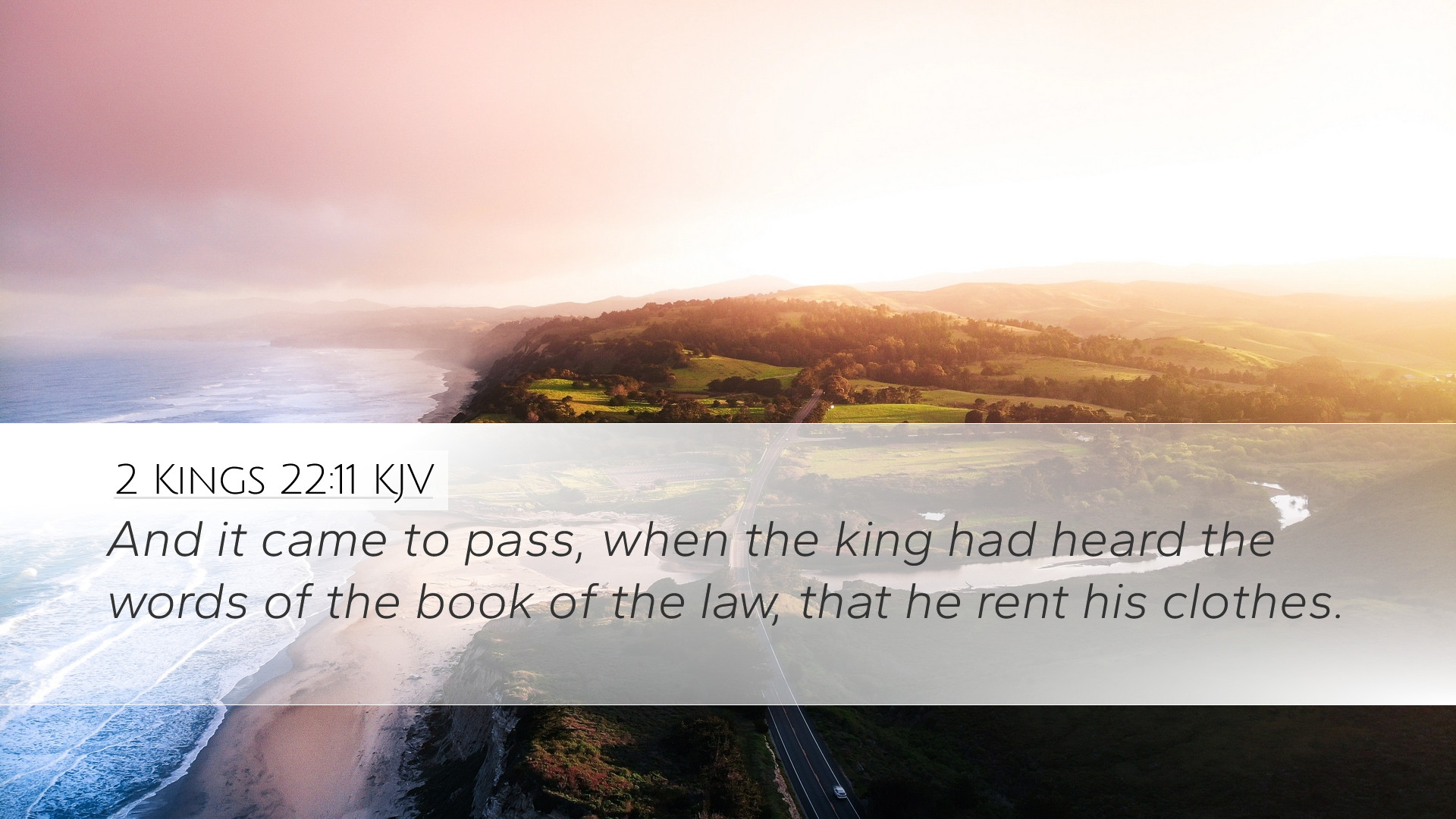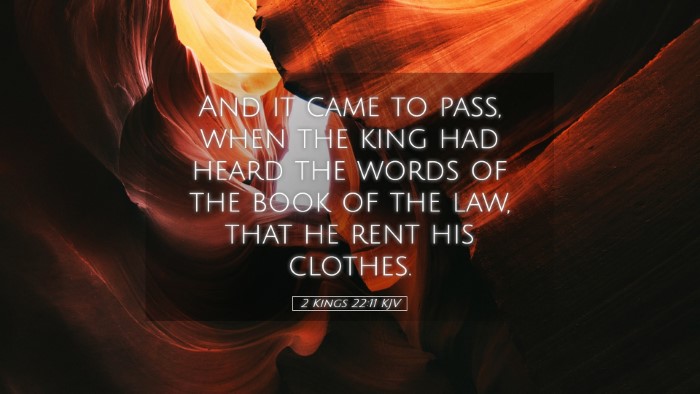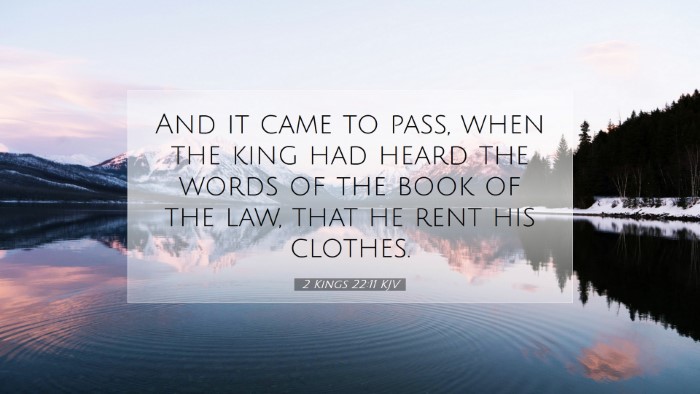Old Testament
Genesis Exodus Leviticus Numbers Deuteronomy Joshua Judges Ruth 1 Samuel 2 Samuel 1 Kings 2 Kings 1 Chronicles 2 Chronicles Ezra Nehemiah Esther Job Psalms Proverbs Ecclesiastes Song of Solomon Isaiah Jeremiah Lamentations Ezekiel Daniel Hosea Joel Amos Obadiah Jonah Micah Nahum Habakkuk Zephaniah Haggai Zechariah Malachi2 Kings 22:11
2 Kings 22:11 KJV
And it came to pass, when the king had heard the words of the book of the law, that he rent his clothes.
2 Kings 22:11 Bible Commentary
Commentary on 2 Kings 22:11
Verse Reference: 2 Kings 22:11 - "And it came to pass, when the king had heard the words of the book of the law, that he rent his clothes."
Contextual Overview
In this pivotal moment within the narrative of 2 Kings, we witness King Josiah's reaction to the discovery of the Book of the Law during the temple renovations. This event occurs in a time of spiritual degradation for Israel, where idolatry and neglect of God's commandments had become rampant.
Historical Background
King Josiah reigned during a tumultuous period in Judah's history, marked by the decline of true worship and the influence of pagan practices. The discovery of the law is not just a physical finding but symbolizes a spiritual awakening and a call to reform.
Matthew Henry's Commentary Insights
Matthew Henry emphasizes the profound impact of the discovery of the Book of the Law on Josiah. He notes that the king’s act of tearing his clothes indicates deep sorrow and repentance. Henry suggests that this response reflects Josiah’s recognition of the collective sin of the nation, as well as a personal sense of guilt for leading his people astray.
Albert Barnes' Commentary Insights
Albert Barnes focuses on the significance of the "Book of the Law" found in the temple. He posits that the existence of this book, long neglected, signifies how far the people of Judah had strayed from the divine paths outlined by God. Barnes adds that Josiah's tearing of his robes is emblematic of the seriousness with which he took the covenant relationship between God and His people.
Adam Clarke's Commentary Insights
Adam Clarke expands upon the implications of the law's rediscovery and Josiah's immediate reaction. Clarke explains that the act of rentings one's clothes was a traditional expression of grief and mourning in ancient Israel. He notes that Josiah was mourning not only for his own personal failings but also for Israel’s state of apostasy. Clarke underlines that this act signified both sorrow for denying God's commandments and a commitment to restore right worship to Judah.
Theological Reflections
-
Repentance as a Response:
The tearing of Josiah's clothes serves as a profound symbol of repentance. In biblical theology, such an act is indicative of recognizing the severity of sin and the need for restoration.
-
The Role of Scripture:
The rediscovery of the law emphasizes the power of Scripture as a transformative instrument for God’s people. It reminds the faithful of the importance of engaging with the Word of God in both private and communal settings.
-
National and Personal Accountability:
Josiah’s lamentation reflects a dual acknowledgment of personal and national sinfulness, a theme that resonates throughout Scripture. It encourages both individual believers and communities to seek alignment with God's will.
Application for Today
The lesson from 2 Kings 22:11 is timeless. It compels modern readers, including pastors and theologians, to foster a culture of repentance and humility before God. As we reflect on God’s Word, we must likewise be prepared to respond with a similar gravity as Josiah did—recognizing the need for personal and communal revival in our churches.
Conclusion
In conclusion, 2 Kings 22:11 serves as a crucial juncture in Israel's history and is rich with theological and practical implications. As leaders and scholars engage with this text, may they be inspired to advocate for spiritual renewal, grounded in the truths of Scripture, and responsive to the Holy Spirit's prompting for reform.


